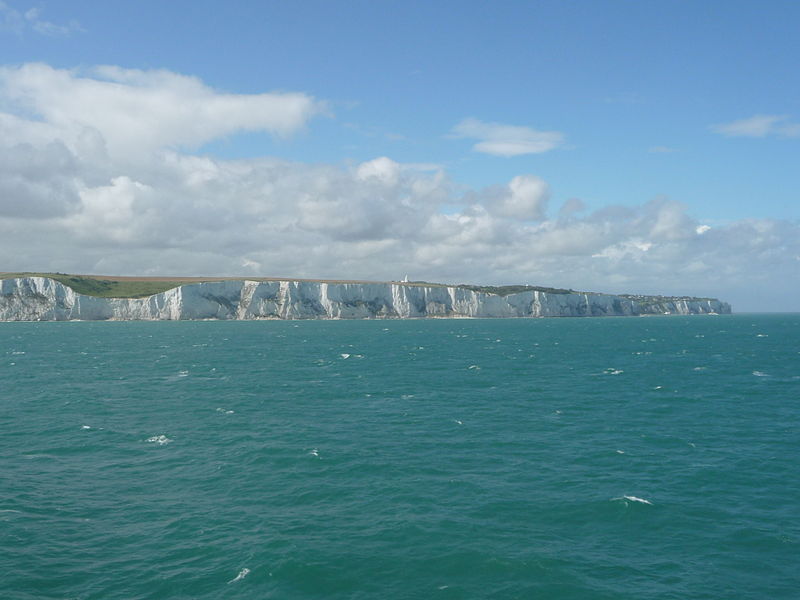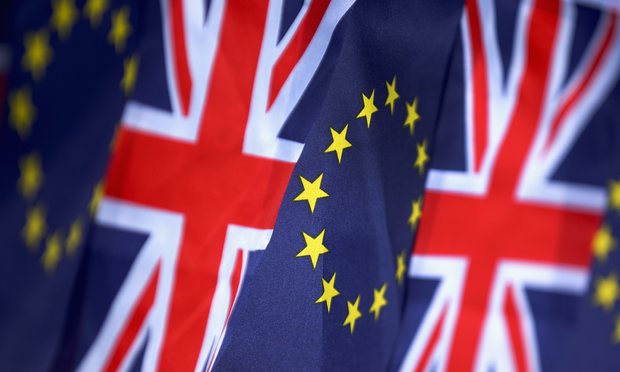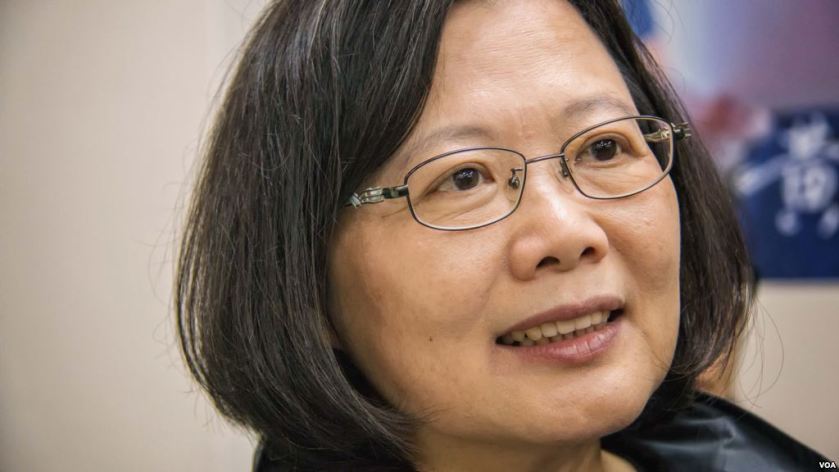By: Pablo de Orellana and Claire Yorke  They used to call us ‘perfidious white Albion’
They used to call us ‘perfidious white Albion’
Britons will wake up on Friday morning to discover whether their future lies within Europe, or without. Over the past few months the debate between the ‘Remain’ and ‘Leave’ camps has dominated the news. For many the end of this week will bring relief that, finally, one way or another, a decision has been made. The referendum campaigns have not painted a flattering portrait of British politics. The tone and rhetoric have been characterised by alarming levels of populism and xenophobia on one side, and a distinct lack of vision on the other. On both sides there has been a problematic absence of facts; with both sides having relied on fear of immigrants or economic breakdown to convince the electorate.
Regardless of the outcome on Friday, the past few months have revealed the alarming growth and extent of nationalism and xenophobia in this country. These dynamics have been fermenting for some time, the result of successive governments failing to address fast increasing inequality, a sense of disconnect and disenfranchisement among the public, a political establishment that panders to a right-wing media, which deploys mild to extreme nationalism to garner votes in a political climate where key institutions are losing credibility. These worrying trends within British politics will not disperse with this Thursday’s vote and will require urgent attention once the dust settles.
This special referendum editorial critically analyses the campaigns and their respective discursive positions, particularly the zero-sum campaigns of fear being waged – the fear of the foreign, and the fear of economic catastrophe. We find that the RemaIN campaign has failed to make a sufficiently positive case for the European Union and in so doing has failed to identify key advances and progress brought about by European cooperation while ignoring the key causes for social and political malaise in the UK that have driven the popularity of Brexit. We then analyse what this debate reveals about the dynamics of identity politics in this country, highlighting that what has been achieved is a narrow and ultimately false reconceptualization of British identity, one that will continue to corrode British politics and values for years unless it is addressed.
The campaigns, the debate
Immigration, Nigel Farage, Boris Johnson, and other members of the Leave campaign tell us, is why the NHS is in crisis, why housing is ever more scarce, why there are insufficient jobs for hard-working Brits, and why the cost of living is so high. In the more extreme cases, it is used to explain a perceived corrosion of the very ethos and identity of the country. Their divisive discourses of ‘us’ and ‘them’ have shown the uglier sides of nationalist politics, portrayed most starkly in the ‘Breaking Point’ poster unveiled by UKIP Leader Nigel Farage last week.
The solution, they argue, is a ‘return’ to our own identity and a regaining of control over British destiny. To have less of them and more of us they offer various iterations on migration control, usually using Australia’s own flawed and controversial system as a guide. Brexiters tell us our sovereignty has been stolen, destroyed, and that our Parliament can no longer act independently. For them, we have been cheated out of our right to decide our fate, we are hostages to the European Union and its drive to create a superstate of Europe. The solution? Cast away the anchor, sail from the shore out to the wider world. How welcoming such figures would actually be to an influx of people from elsewhere is questionable, despite their claims to the contrary.
This trend, however, is not unique to Britain. Donald Trump in America, the Front National in France, Lega Nord in Italy, Golden Dawn in Greece, Alternative fur Deutschland in Germany, and many others have all experienced a surge in support in recent years. The march of xenophobia and ever more extreme nationalism is matched across the West by the similar rise of populist or radical left-wing politics, sometimes recycled from the 1980s, that gain traction with promises to reclaim control from unaccountable economic elites: Sanders in the US, Podemos in Spain, Cinque Stelle in Italy, Corbyn in the UK, and many more.
It reflects a malaise that is far from exclusively British and is common across the West. The core of the problem can be identified within the claims as to what immigrants are accused of stealing and destroying: access to healthcare, housing, education, decent pay, job stability. Yet these are not problems of immigration. The excessive burden and pressure overwhelming those key social institutions speak more widely to economic and societal problems as well as failures in governance. It is in part a result of governments being unable or unwilling to address inequality at a time when the gap between the richest and poorest has grown to levels unknown since the end of WWII, and the lack of investment to ensure access to vital services. While concerns about immigrants make headlines and are freely used as electoral ammunition, little is said about the role of wealthy foreigners who invest in property in the capital and push up house prices, while doing little to contribute to the tax system. The selectiveness of this anti-immigration discourse is but an example of what the West does have in common, and which affects crucial social institutions: the economic theories that have dominated the West for the last three decades. Their most recent reincarnation is the economics of austerity that have dominated economic thinking and particularly governance and social investment since 2008.
Conversely, the RemaIN campaign has failed to provide a positive vision of why Europe matters. It has instead resorted to highlighting the economic catastrophe that awaits a post-EU world and the insecurity that Brexit will bring to this country. Figures have been rustled up, stretched, and recalculated to prove how the average working household, businesses and the entire country would lose untold sums of money. Helpfully, the stats are announced in terms of monthly and yearly household losses. Even house prices are at threat from Brexit. Despite some RemaIN voices defending progressive aspects of EU policies, the gist of the campaign to remain in is that untying the UK from the EU would irremediably impoverish the UK. In other words, there are no reasons to remain as much as terrifying reasons not to leave, and the facts marshalled for the arguments relate therefore only to the wallets of individual ‘working people’. It is unwise to rest so much on a negative vision, especially when promoted by leaders increasingly discredited by the economic orthodoxy they have been pursuing for years. Pulling on pursestrings rather than heartstrings does little to arouse political passions when faced with emotional pleas for independence and a reassertion of Britain as a great country. In this debate, fear of destitution has been pitted against fear of the foreigner. Neither plays to our country’s strengths or vast potential.
For Britain, Europe holds far more than economic stability and security. The European project has brought not only peace since the end of two world wars –one of the longest periods of peace since the fall of the Western Roman Empire- but also growing exchange and interaction among disparate people who have far more uniting them than dividing them. The ability to travel without border checks and visas has opened up the continent, making Genoa as easy to reach as Newcastle, and Madrid as easy as Bath. Leaving the European Union would make the ease of movement, whether for business in Brussels, holiday homes in the Algarve, retirement, or parties on the beaches of Ibiza far harder.
For students and young people, the investment of the European Union in education has meant opportunities have flourished for students to develop international networks and learn more about people from across the region who have similar approaches to life, irrespective of their background or language. Many students in the UK have been able to participate in invaluable exchanges such as the Erasmus scheme, where learning a language is coupled with life experience in a foreign environment both of which serve to make the language, the people, and the culture far more accessible and familiar. If anything, Britain would do well to embrace these more for future generations.
London is a financial capital of the world, this case has been amply made. Yet small and medium industries also benefit from the connectivity with Europe and the access it brings to a larger market and new consumers. For young people, greater opportunities can be found in employment opportunities through Paris, Berlin and Rome. Given the difficulty of the current job market the country should be seeking out these opportunities and reducing the barriers of entry to the next generation.
A European identity is not something we should be shy of embracing. Europe has brought, and continues to enable, the exchange and sharing of art, culture, ideas, and scientific development. It is through such exchange that our own culture thrives and develops, feeding off new and different ideas. The European Capital of Culture initiative has revived and energised cities in the United Kingdom like Liverpool, showcasing local talents, investing in cultural establishments and bringing new people from beyond the region to enjoy and experience it.
Some in Britain may feel the country can go it alone, but to turn our back on the diversity, richness, and opportunity of Europe, is to deprive ourselves of a historical, cultural, intellectual and educational opportunity to really be the thriving, cosmopolitan and outward looking country that Britain should be.
A Flawed Union contra Britain’s identity
The European Union has many flaws, not least accountability, transparency, and the visible disconnect from domestic populations that this referendum has highlighted. In spite of this, it would be foolish to cut and run. British interests and the future of Europe are better served by Britain being an active member of the Union and leading and reforming it from within. An optimist might hope that the strength of feeling the Brexit debate has demonstrated, and the nature of the concerns raised by both sides, might spark a wider European discussion about how to reform the institutions and processes of the EU. If Prime Minister Cameron survives the election, this may be one way he can seek to mend the large cracks that have revealed themselves in his party and British society as a whole.
Britain, for its part, has fallen short of its leadership potential within the EU. This is not just a fault of the current government, which expended precious European political capital to defend tax havens and slow down tax reform affecting multinational corporations, but of every British government since we joined. Britain has appeared as an apathetic participant. We are convinced that many European countries, exhausted of the austerity orthodoxy uncompromisingly advocated by Merkel’s German government since 2008, would welcome alternatives. In the EU, any alternative and reform must be supported by big power, and as a big power, Britain can do far more to press for reform from within. The Franco-German duopoly, lately more of a German monopoly, is not a given in the EU. We can and should balance it: firstly so that we have a stronger and more coherent leading voice in Europe in defence of our own, and mutual, interests, but secondly so as to improve this deeply flawed Union from within.
The idea that Britain can and should go it alone is based on a misguided sense of ‘Britishness’. Britain has never really been an island beyond the literal sense and Europe informs British identity far more than either Leave or Remain acknowledge. Modern day Brits are part of a family tree whose branches extend throughout Europe and beyond. Modern Britain, and its structure, politics, and culture, are built on the legacies of successive waves of immigration and change originating on the continent. Celts, Romans, Gaels and Scotii, the Angles, Saxons, Jutes, Vikings, Normans and French, and more recently Europeans and the peoples of the Commonwealth and the world have over three millennia contributed to the extremely particular, mixed and vibrant cultural and social constitution of this country. Through this history, both positive and negative, Britain is the product of trade, travel, the movement of goods and people, the exchange of ideas, and the ongoing incorporation of different cultures.
The English language is a wonderful amalgamation of languages: French, German, Scandinavian, Hindi, Greek, Arabic among many others. The idea of British greatness as independent of anything or anyone else is not only an unjust falsehood, but also arrogantly denies the influence of its multicultural past. We are better for such exchange and should be embracing our international roots. Our identity is informed, even subtly, by these European and international influences. Europe is inescapable, hardwired into British culture.
Immigrants do not pose a danger to this identity. Although there are practical concerns about immigration to debate and resolve, not least linguistic, economic and social integration, education, and healthcare, claims of the dangers posed by immigrants to the country are tinged with the notion that their negative traits are a congenital result of having roots in a certain country: this is the definition of xenophobia. We see this in Farage’s exclamations of immigrant danger, which operates on the basis that there is some satisfactory threshold of potential immigrants and any more dilutes the nation’s sense of Britishness, a similar theme is in the Conservative obsession with quantitative quotas. Both reveal the core assumption in this discourse that any immigrant is bad, whence the debate surrounding quotas, and thus to various degrees all immigrants stand accused of stealing opportunities and social care, as well as being more predisposed to crimes, , as he has at times asserted. There may be undesirable elements among those who come to this country, just as there are among Brits, yet research has conclusively proven that immigration into the UK is largely composed of young people that are active members of society, who require less healthcare, housing and ‘have a higher labour force participation rate, pay proportionately more in indirect taxes and make much less use of benefits and public services’ and overall also raise wages.[1] It could be argued, conversely, that much of the UK’s emigration into Europe is less helpful, often composed of over-60s and pensioners that require healthcare and social services from their host countries, mostly Spain, Italy and France, and rely on the EU treaties to not have to pay for them. It is telling of the power of identity politics that it is seldom questioned why they deserve those rights while Europeans in the UK do not.
Mainstream parties are deeply implicated in the growth of the nationalism we are witnessing and its anti-immigration policy consequences. Nigel Farage and UKIP alone cannot be credited with this shift. It is only when established politicians deploy such politics, as we saw in the last London and general elections, that the idea that immigrants are to blame for everything can finally go mainstream. When long-established centre-right conservative and centre-left social democrat parties seek to steal votes from either extremes by aping their discourses, they not only fail to take those votes, but they legitimise their discourses. We are witnessing an auction, the value of nationalist ideas gaining currency and being amplified as politicians bid for votes. Nationalism is a dragon that has its own internal dynamics, it will not stay long with the rider that seeks to utilise it, and will constantly seek expressions that further simplify, radicalise and actualise the conflict of Us versus the Other.
In other words, the ever more frequent exploitation of identity for electoral gain makes those ideas ever more mainstream, bigger, and the fringes of those ideas more violent and extreme than hitherto. Ultimately, the normalisation of these ideas at the centre and their further radicalisation at the fringes is making us less tolerant, less compassionate, and less able to understand the manifold experiences of people who make up and contribute to this society.
Conclusion
Following the referendum there are a number of potential outcomes. If Britain chooses to leave the EU there will be a difficult divide to rebuild, not only within Britain, but also with our European neighbours. If Leave succeed, it will commence a long and protracted period of new negotiations, of renegotiations and of re-establishing Britain’s place in the world as an island nation. It may well be able to create new deals with non-EU states, but it will be a lengthy and costly process. There will undoubtedly be a period of economic uncertainty, if not a crash as investors remove their money and seek the safer and more stable opportunities of mainland Europe.
Politically, there will be a reckoning for the Prime Minister and his party and for those who staked their careers on Remain as leaders such as Nigel Farage claim a victory and Tory grandees in the Brexit camp seek access to the leadership position. The dragon of nationalism that this campaign has stirred will not lie content with Brexit. If the country’s ills are not resolved by this ‘declaration of independence’, nationalism will thrive, further disintegrating the social compact of the country, seeking new foreigners and internal enemies to blame and stigmatise for the ills of society, the state and the country. The oft-cited preference of Leave campaigners for Australia’s deeply problematic and frequently dehumanising immigration policy and methods might spell the end of British values and respect for human life, as nationality increasingly determines the quality and rights of individuals.
If Remain win there will be a collective sigh of relief, but also a genuine need for introspection and regrouping. If Remain are successful it will have been through close margins, too close for comfort. Those in the Remain camp will need to rebuild the trust and sense of solidarity with the European partners who have watched the divisive debate unfold. Political and societal leaders will need to rebuild relations with those within Britain who feel less certain about how welcome they really are in this country. The Remain side would be wise to use the need for reform to reengage with the EU on a more proactive basis, leading and contributing to the vision of how Europe can and should be better, more transparent, more accountable and more in touch with populations.
The government has overlooked vital issues during this process, including the NHS, education, welfare, housing, and reform, all of which are latent frustrations underlying the divisions that have emerged. These cannot be blamed on immigrants forever, nor is it a valid or justifiable short-term excuse. These sentiments and the strength of feeling aroused through the campaigns point to more worrying and long-term concerns within society that will not dissipate on Friday. Addressing the toxic nature of the debate, and the evident distrust not only of the political class, but also of the expert establishment, will be critical challenges for Britain whatever the outcome.
It is precisely because our island cannot be untied from the continent, because we are only thirteen miles from our European neighbours, that we have a stake in one another’s political health. This means Britain should keep a seat at the table; and take a more energetic leadership position in the EU, which much of Europe would welcome to balance the dominance of France and Germany. Finally, it should be part of a concerted fight against the detrimental effects of populist nationalism. If we were to invoke Churchill more sensitively than the Leave campaign has, we would point to his struggle against populist Fascism, highlighting that as Europe was almost destroyed by the last tide of incendiary populist identity politics in the 1930s, we should know better.
Dr Pablo de Orellana is a Spanish-born, Italian-raised anglophile that became British by choice, time, and friendships. He is a Teaching Fellow at King’s College London specialising in identity politics, diplomacy, and critical theory and he occasionally indulges in the arts.
Claire Yorke is a British-born Europhile that through love of languages, literature, travel, and culture became European. She is a PhD Researcher at King’s College London, Department of War Studies researching discourses of empathy in diplomacy.
[1] Christian Dustmann and Tommaso Frattini, “The Fiscal Effects of Immigration to the UK,” The Economic Journal 124, no. 580 (November 1, 2014): 593–643; Christian Dustmann, Tommaso Frattini, and Caroline Halls, “Assessing the Fiscal Costs and Benefits of A8 Migration to the UK,” Fiscal Studies 31, no. 1 (March 1, 2010): 1–41; Christian Dustmann, Tommaso Frattini, and Ian P. Preston, “The Effect of Immigration along the Distribution of Wages,” The Review of Economic Studies 80, no. 1 (January 1, 2013): 145–73.






 They used to call us ‘perfidious white Albion’
They used to call us ‘perfidious white Albion’

